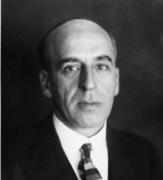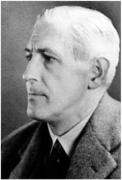|
|
||||||||||||||||||||||||
 |
Featured person
Recently added |
Sean Lester (1888 - 1959): |
||||||||||||||||||||||

|
| Sean Lester |
John Ernest Lester was born on 27 September 1888 at Woodburn, in Carrickfergus, Co Antrim. He moved to the Ormeau Road in Belfast when his father, Robert John, opened a grocery business at number 124 on the corner with Balfour Avenue.
Lester attended Methodist College, and on leaving school, in 1905 he went to work as a journalist on the North Down Herald in Bangor. One of his contemporaries at the paper was Ernest Blythe. It was around this time Lester changed his name to Seán, in line with his nationalist beliefs. He joined the Gaelic League, and then the Irish Republican Brotherhood in 1908, and Sinn Féin in 1909. He always considered that nationalism was not for Irish Catholics alone.
Seán Lester worked on newspapers in Dublin, and was news editor of the Freeman’s Journal from 1916-1922. In 1920 he married Elizabeth Tyrrell, daughter of Alderman J. Tyrrell of Belfast, and they had three daughters, Dorothy Mary, Ann, and Patsy. He joined the publicity department of the Irish Free State’s Department of External Affairs, and was director of publicity from 1925 to 1929. In a move that shaped his further career, in 1929 Lester became Ireland’s permanent representative at the League of Nations in Geneva. He played a central role in Ireland’s election to the League’s council in 1930, and subsequently chaired committees working to resolve conflicts in Latin America and Manchuria.
Lester was then seconded to the service of the League of Nations, and in 1934 became High Commissioner in the League-controlled free city of Danzig (Gdansk). He attempted a compromise between the German and Polish populations, and endeavoured to protect the city against Nazism. When he protested against the oppression of non-Germans by the Nazicontrolled city assembly, Lester became the subject of a harsh intimidation campaign. He resigned in 1937 and returned to Geneva. His courageous stance in Danzig is remembered in Poland still.
Lester was made deputy Secretary-General of a League diminished in power by political upheaval. Following the start of war in 1939, the French Secretary-General Joseph Avenol wanted to capitulate with the axis forces that he saw as the eventual victors. Lester and he clashed, and Avenol resigned. This resulted in Seán Lester becoming acting Secretary-General in September 1940. It was a thankless task, with only a skeleton staff, and Lester considered that keeping the League going until the post-war period was the hardest time of his life. He was under considerable strain at work and was separated from his family in Ireland. In April 1946 he presided over the final assembly of the League, working on its administrative liquidation until August 1947, when he left Geneva. He was retrospectively made Secretary-General of the League from 1940-1947.
Seán Lester retired to Connemara to fish and garden. He received an honorary LLD from the University of Dublin (Trinity College, Dublin) in 1947 and another from the National University of Ireland in 1948. For his distinguished service in maintaining the League through the war, in 1945 he received the Woodrow Wilson Foundation award.
Although the League of Nations failed in its ambition to prevent further world conflict, in his work for the League Seán Lester embodied the best ideals of international co-operation. He died in hospital in Galway on 13 June 1959, and is buried at Christ Church in Clifden.
| Born: | 27 September 1888 |
| Died: | 3 June 1959 |
| Patrick Devlin |
| Acknowledgements: ONDB; Michael Kennedy |


Home | Our Policies | Plaques | Browse | Search | Sponsors | Links | Help | Contact
Privacy & Disclaimer | Cookie Policy | Site Map | Website Design By K-Point
© 2024 Ulster History Circle









